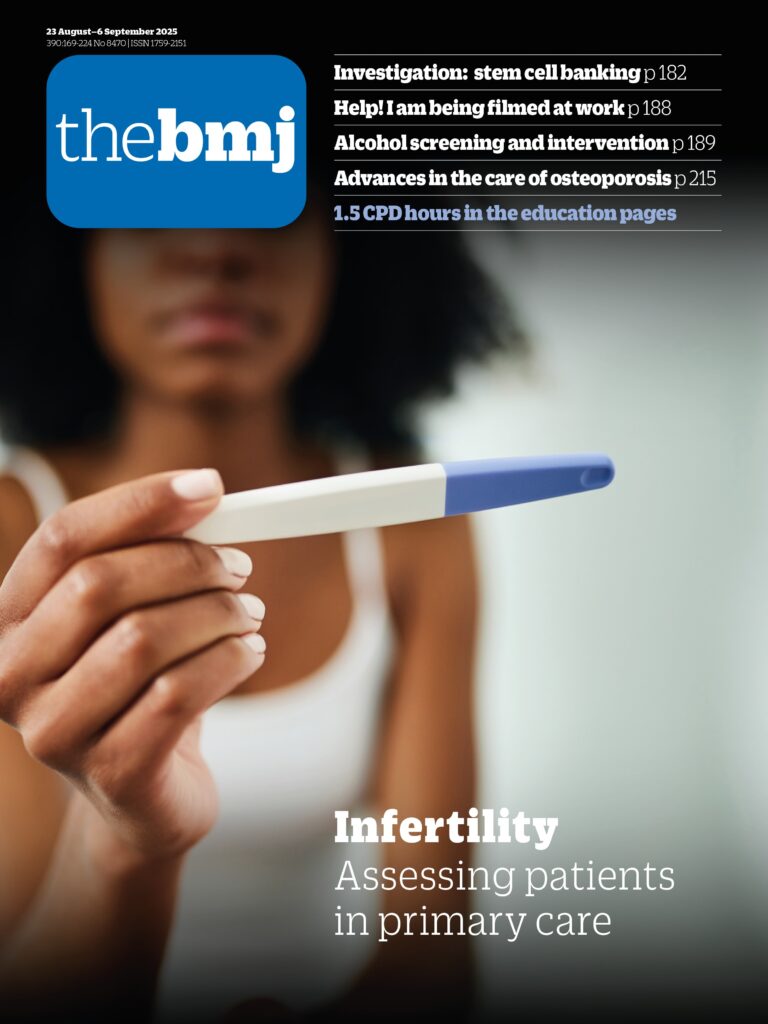- Simon Opher, general practitioner and MP for Stroud,
- James Bethell, former minister and member of the House of Lords2
- Correspondence to: S Opher simon.opher.mp{at}parliament.uk
On 12 September the House of Lords will start scrutiny of the Terminally Ill Adults (End of Life) Bill, after it passed the House of Commons at third reading in June.1 Under the proposed law, patients assessed as having full mental capacity and a terminal illness with a prognosis of six months or less can request assisted dying.2 They would need approval from two registered doctors and an assisted dying review panel, comprising a social worker, lawyer, and psychiatrist.
Peers will undoubtedly discuss ethical and spiritual aspects of the bill. But it is critical that they make time to consider some of the practical challenges in the legislation, so that implementation is not the unintended cause of any severe disruption or breakdown of trust in our health system. Frontline clinicians have raised several issues with the All Party Parliamentary Group on Health, of which we are officers. These include the effect on NHS capacity, medicalisation of the process, whether assisted dying should be integrated with existing NHS services, assessment of mental capacity, and who should sit on the review panel.3
There are several issues that should be scrutinised at the House of Lords. Most importantly, the bill must be made more user friendly for the NHS, but the balance between safety, public confidence, and resource management is delicate so must be handled with care. Attempts by peers to dilute safeguards added in the Commons risks backlash and reversal by MPs. Conversely, expanding safeguards risks bureaucratic delays, patient hardship, and potentially reduced safety. Clear, simple legislation avoids unintended consequences; this is a chance to streamline the bill.
For example, a rural patient whose general practice opposes the bill may face barriers. Although the bill allows doctors to opt out, all patients must receive information regardless of clinicians’ views. These practicalities must be clarified.
It is also unclear whether assisted dying should sit within the NHS or as a standalone service. This key question has a bearing on the regulatory regime and responsibilities of bodies such as the Care Quality Commission and healthcare services. Getting this right affects equity of access and accountability: we need a bill that provides that everyone should be entitled to an assessment.
In addition, the current text offers, but does not mandate, palliative care referral for patients requesting assisted dying. Some would like referral to be a legal obligation. But others fear mandating it could undermine patient autonomy and increase pressure on already limited palliative care resources.
The bill’s approach to patients’ decision making capacity is another contentious issue. The question remains whether patients should be presumed to have capacity (as under the Mental Capacity Act) or whether they must demonstrate they have capacity (as in Jersey).45 England’s chief medical officer, Chris Whitty, argues that the Mental Capacity Act is familiar and trusted, and any divergence could undermine safety.6 Others want a tailor made regime that recognises the gravity and nature of the decision.
There are also concerns about the composition of the review panel. Many experts argue that requiring a psychiatrist is unnecessary, suggesting a mental health nurse or social worker with “best interest” training could be a better skills and experience fit and save precious psychiatric resources. A debate is needed on how such a change could improve implementation without compromising safety.
The Department of Health and Social Care has four years to deliver the assisted dying framework, yet many details, such as delivery and training, remain unsettled. Training in assessing capacity and detecting coercion is required before the launch, and specifying interim deadlines for the preparatory work in the bill or in ministerial commitments from the despatch box would increase confidence.
Finally, the Lords must discuss whether doctors need to remain with patients after administration of assisted dying medication, as currently required by the bill. This seems to be a reassuring safety protocol, but it is also hugely resource heavy. Doctors are not expected to stay with patients dying naturally. This issue could become a totemic debate over the balance between professional obligations, patient dignity, and realistic resource allocation.
These are some of the practical issues facing peers in the debate. They have an important bearing on NHS resources and trust in the system. Drafting coherent and resilient legislation is essential to creating a programme that has the confidence of the British people and to avoid unintended consequences, because severe disruption or a breakdown of trust could damage our fragile NHS for good.
Footnotes
-
The BMJ and the All Party Parliamentary Group on Health hosted a roundtable meeting with parliamentarians, commissioners, and providers of end of life care, and academics working on implementation, chaired by Simon Opher and James Bethell on 9 September 2025 at the House of Lords.
-
Competing interests: None declared.
-
Provenance and peer review: Commissioned; not externally peer reviewed.

